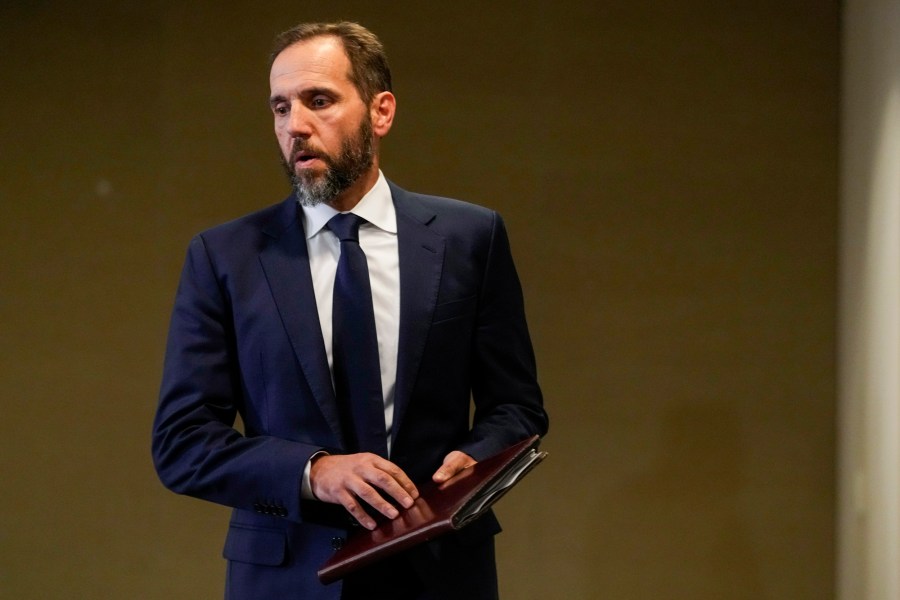Just more than 2½ half years after the Jan. 6 insurrection triggered by Donald Trump, special counsel Jack Smith has indicted the former president on four charges in connection with his actions leading to and on that day. Based on the indictment itself and the mountain of other publicly available evidence, the case appears compelling. As Smith said at his post-indictment press conference, a speedy trial is imperative for the health of our democracy. To that end, he and his team have produced an indictment defined by clarity and relative simplicity.
For all the chaos Trump wrought from November 2020 to Jan. 6, 2021, Smith lays out a straightforward factual narrative of his actions. As one of us outlined in a comprehensive model prosecution memo for Just Security, Trump undertook a three-step plan to overturn the election.
Beyond the uncomplicated factual narrative, Smith has also kept the indictment as legally straightforward as possible.
First, after losing the election, Trump and his allies allegedly concocted a variety of schemes to overturn the results. Smith documents these conspiracies, which include: pressuring states to overturn the election on the basis of false claims of election fraud; utilizing the power of the Justice Department to achieve these same aims by, in part, having the department “conduct sham election crime investigations” and using its authority to “falsely” buttress the legitimacy of Trump’s schemes; and soliciting false electoral slates. These were certificates obtained from dozens of Trump-supporting electors in seven states which described the signers listed as “duly elected.” In fact, they were no such thing.

Second, as almost all of these plans failed, Trump and his team focused on one remaining avenue: using the false claims of election fraud and phony electoral slates to pressure then-Vice President Mike Pence to obstruct the constitutionally mandated congressional certification of the election Jan. 6, by either blocking Congress from recognizing Joe Biden’s win or by delaying the vote count.
Finally, after Pence refused on the morning of Jan. 6, Smith alleges, Trump took advantage of the violence at the Capitol “by redoubling efforts to levy false claims of election fraud and convince Members of Congress to further delay certification based on those claims.”

Beyond the uncomplicated factual narrative, Smith has also kept the indictment as legally straightforward as possible. Although many statutes could potentially apply to this case, he charged the entire plot under just three statutes.
First, Smith details how the alleged schemes Trump embarked upon after the election and through Jan. 6 constituted a conspiracy to defraud the United States in the administration of elections under 18 USC 371, such as by pushing the aforesaid fraudulent slates and all the other alleged schemes.
For the second and third counts, Smith alleges Trump obstructed and conspired to obstruct an official proceeding of the United States government, under two different parts of 18 USC 1512, by conspiring to and interfering with the proper counting of the ballots Jan. 6. This applies to multiple alleged Trump schemes, including submitting false electors, pressuring Pence to stop or suspend the certification of the election, and exploiting the violence that day to halt the certification.
By charging Trump alone, Smith emphasizes his centrality — and keeps the indictment simple.
And by preventing the correct counting of votes, Smith charges, Trump also deprived the rights of Americans to have their votes fairly counted under a third criminal statute, 18 USC 241. Smith’s Section 241 charge is within the heartland of that statute – for more than 100 years, the Justice Department has successfully prosecuted conspiracies to prevent the proper counting of ballots in federal elections under Section 241.
Each of the charges in the indictment alleges Trump was at the heart of this effort to overturn the will of the voters. This must never be lost in the farrago of machinations in the wake of the 2020 election. By charging Trump alone, Smith emphasizes his centrality — and keeps the indictment simple.













